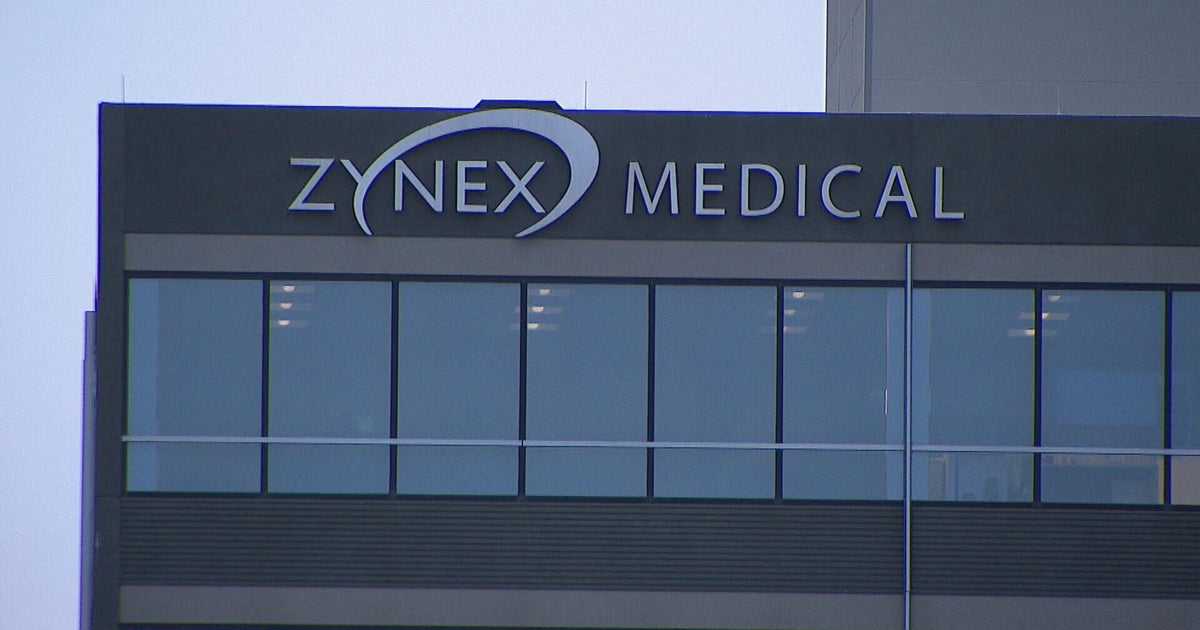Dems Round Up 60th Vote for Health Bill
Last Updated 2:15 p.m. ET
A holdout no more, Democratic Nebraska Sen. Ben Nelson agreed Saturday to provide the 60th and deciding vote for Senate passage of sweeping health care legislation, capping a year of struggle and a final burst of deadline bargaining.
Nelson said he made his decision after winning fresh concessions to limit the availability of abortions in insurance sold in newly created exchanges.
"I know this is hard for some of my colleagues to accept and I appreciate their right to disagree. But I would not have voted for this bill without these provisions," he said at a news conference in the Capitol.
He also noted he had successfully fended off attempts to provide for a government-run insurance option to compete with private insurers.
President Obama spoke at the White House on Saturday not long after Senate Democratic leaders secured Nelson's support. Mr Obama said he thinks the country is "on the cusp of making health care reform a reality."
The president said that "it now appears the American people will have the vote they deserve" on this important issue.
He called Saturday's development a major step forward in extending coverage to the uninsured and saving money for businesses and the government in the long term.
Obama also said that overhauling the nation's health care system will save lives.
Nelson disclosed his decision as Majority Leader Harry Reid unveiled a final series of changes to the measure, including concessions to Nelson on abortion, funding for his state and more.
CBSNews.com Special Report: Health Care Reform
The Congressional Budget Office estimated the revised measure would lower deficits by $132 billion over a decade, with the possibility of much higher reductions in the subsequent decade.
The nearly $900 billion bill would be paid for by $483 billion in cuts to Medicare and other federal health programs, as well as tax increases.
Forecasters said the bill would expand coverage to roughly 94 percent of eligible Americans under age 65, a total that excludes illegal immigrants.
Reid said the measure "will finally level the playing field between American families and the insurance industry."
With Nelson's decision, Mr. Obama's Senate allies appear on track to pass the legislation by Christmas, overcoming Republican opposition and a swirling early winter snowstorm.
On abortion - an issue on which Nelson had pushed for more restrictive language in an amendment that failed - the measure would let states disallow coverage in new insurance exchanges.
The overhaul compromise also puts new limits on insurance company profits. The measure would require insurers in the individual market to spend 80 percent of premiums on medical care. The requirement for group policies would be 85 percent. That would limit overhead and profits.
Also, children could not be denied coverage for health problems.
At its core, the measure is designed to spread coverage to tens of millions who lack it, while banning insurance company practices such as denial of coverage on the basis of pre-existing medical conditions. The White House also wants the legislation that eventually clears Congress to slow the rate of growth in national medical spending overall. The House passed its version of the legislation last month, and final compromise talks are expected quickly.
"Some on the right think this bill goes too far and they want it stopped," Reid said at a press briefing Saturday morning. "To them I say, you have a lack of understanding what the problems in America are today."
"Today we stand ready to pass a bill into law that finally makes access to quality health care a right for every American, not a privilege for a fortunate few in our country," said Sen. Christopher Dodd, D-Conn.
"Ted Kennedy never stopped believing that in the wealthiest country in history everyone should be guaranteed access to decent health care. And he never stopped believing that in the freest country in history it would someday come to pass. That 'someday' is upon us. We are prepared to pass legislation [that would] guarantee that no American will ever again go broke because they got sick. No one will die because they couldn't afford the treatment they needed. This moment and these moments do not come often. We will not and we must not let it slip through our hands."
Sen. Tom Harkin, D-Iowa, addressed progressives who have criticized the bill because proposals for a public option or Medicare buy-in have been jettisoned in order to achieve a compromise. "I put it this way: What we're building here is not a mansion. It's a starter home. . . . It has room for expansion and additions in the future. But if we don't get started with the starter home we'll never get there.
"So this is not the end of health care reform; this is the beginning of health care reform."
"This bill is a legislative train wreck of historic proportions," Senate Republican leader Mitch McConnell of Kentucky said. He said it includes cuts to the federal Medicare health care program for the elderly, home health care and hospices, as well as "massive tax increases" at a time of double-digit unemployment.
Republicans accuse Democrats of trying to ram the bill through before anyone's had a chance to read hundreds of pages of amendments.
"There's been no bipartisanship, there's been no negotiations, there's been no conversations," said Sen. John McCain, R-Ariz.
Some analysts say if the Senate doesn't meet the Christmas deadline, it could jeopardize the president's hopes of getting a final bill early next year.
"The White House understands that they've got members of the Senate in a bubble, they've got 'em in Washington, they can keep pummeling, and if they go home the Members of the Senate may find that opposition to the health care reform bill has grown," political analyst Larry Sabato told CBS News.
The latest CBS News poll shows public support for health care reform continues to fall. Fifty percent of Americans now disapprove of the president's handling of health care reform, the highest level yet.
Appearing on "The Early Show" Saturday, Sen. Sherrod Brown, D-Ohio, said he believed not only that the Democrats would gain and hold 60 votes, but that the public would back them.
"The insurance companies are not going to continue to get their way the way they have during the Bush years, and the way they're trying to get the Republicans to slow this down and block it at any price," Brown said.
"I think the public is ready for this change," he said, promising the bill would strengthen Medicare.
He also said people who have health insurance can keep what they have, while gaining "good, strong consumer protections."
"There are a lot of things in this bill that the country is ready to move on," he said.
When asked about objections by Republicans to the reform package, Brown pointed to arguments made 40 years ago against Medicare. "Very few Republicans supported it because they didn't like the idea of government involvement in health care, and clearly Medicare has worked. And most people in this country understand this is the direction we need to go.
"This bill is not perfect," Brown said, pointing to its lack of a Medicare buy-in (which he had supported), but said, "Reform really never ends. We need to keep fixing this system and making it work better."
Additional Coverage of the Health Care Debate
Dems Seek Unity as GOP Attacks Health Bill
GOP Tries to Stall Bill to Fund Pentagon
MoveOn Opposes Senate Health Bill
Hatch: Senate GOP Dedicated to Stopping Health Bill
Nebraska Clergy Tell Ben Nelson: Back The Health Bill
Lieberman Stance Prompts Anger at Obama
Emerging from marathon talks with Reid and White House officials late Friday night, Nelson said "real progress" had been made toward his call for greater restrictions on abortion within the legislation.
Majority Leader Harry Reid decided to go public a final package of changes in the long-debated legislation on Saturday "and is confident that it will prevail," his spokesman, Jim Manley, said in a late-night statement.
Reid made no comment to reporters, but Sen. Chuck Schumer, D-N.Y., another participant in the talks, sounded pleased. "I've been in Harry Reid's office for 13 hours and I'm glad to get out of there," he said. "But I'm particularly glad with what has happened in that office."
Nelson disclosed his decision as Reid unveiled a final series of changes designed to solidify support. Among them was an increase in the Medicare payroll tax of 0.9 percent on income over $200,000 a year for individuals and $250,000 for couples. The bill earlier raised those taxes by 0.5 percent.
The legislation includes new limits on insurance company profits and overhead, requiring them to spend 80 percent of their premium income on medical care for individual insurance policies, and 85 percent for group policies.
The estimated 30 million Americans purchasing coverage through new insurance exchanges would have the option of signing up for national plans overseen by the same office that manages health coverage for federal employees and members of Congress. Those plans would be privately owned, but operated on a nonprofit basis.
The option amounts to a consolation prize for liberals, who failed to include a government-run alternative.
Additionally, insurance companies would be barred immediately from denying coverage to children because of a pre-existing health condition. The prohibition on denial of coverage for adults would not take effect in the Senate bill until 2014, a disappointment for consumer advocates.
On abortion, the measure would let a state disallow coverage in new insurance exchanges by passing a law to that effect. Additionally, it sets up a mechanism to segregate funds that would be used to pay for abortions from federal subsidy dollars flowing to health plans.
Federal law now prohibits public money for abortions, except in cases of rape, incest or to save the life of the mother. From the beginning, the issue has been how those restrictions would be applied to a new stream of federal money under the overhaul bill.
The issue is contentious because the legislation provides federal subsidies to help lower and middle-income families afford insurance and the other federal health care programs ban the use of government money to pay for abortions.
With Nelson's vote, President Obama's Senate allies would have the 60 needed to overcome a filibuster by Republicans.
That gave Nelson enormous leverage as he pressed for concessions that included stronger restrictions on abortions to be covered by insurance policies offered in a newly overhauled health care system. Officials said he was also seeking to ease the impact of a proposed insurance industry tax on nonprofit companies, as well as win more federal funds to cover Nebraska's cost of treating patients in Medicaid, the state-federal health care program for the poor. These officials, speaking on condition of anonymity because of the sensitivity of the talks, said the administration and Democratic leaders had offered concessions on those points.
The Nebraska Democrat has already rejected one proposed offer on abortions as insufficient, and the presence in the talks of Sen. Barbara Boxer, D-Calif., indicated additional changes were on the table.
Boxer has a strong record in favor of abortion rights. She told reporters as she left the Capitol at the end of the evening there had been progress made on the issue of separating personal funds, which may be used to pay for abortions, from federal funds, which may not.
The issue is contentious because the legislation provides federal subsidies to help lower and middle-income families afford insurance and the other federal health care programs ban the use of government money to pay for abortions.
Mr. Obama devoted his weekend radio and Internet address to the issue he campaigned on in 2008.
"Now - for the first time - there is a clear majority in the Senate that's willing to stand up to the insurance lobby and embrace lasting health insurance reforms that have eluded us for generations," President Obama said. "Let's bring this long and vigorous debate to an end."
"As this difficult year comes to a close, let's show the American people that we are equal to the task of meeting our great challenges," he said.
In the Republican response, Sen. John McCain warned that rushing through legislation now would do more harm than good.
"The best thing government could do to ensure more Americans have access to health care insurance is to institute reforms that would rein in costs and make health care more affordable," said McCain, R-Ariz. "Regrettably, there's nothing in this legislation that effectively addresses the problem."
In an article she wrote in Saturday's Washington Post, Vicki Kennedy, the widow of Sen. Ted Kennedy, D-Mass., said that while the Senate bill is imperfect, it would achieve many of the goals her husband fought for over four decades.
"I humbly ask his colleagues to finish the work of his life, the work of generations, to allow the vote to go forward and to pass health care reform now. As Ted always said, when it's finally done, the people will wonder what took so long," she said.



